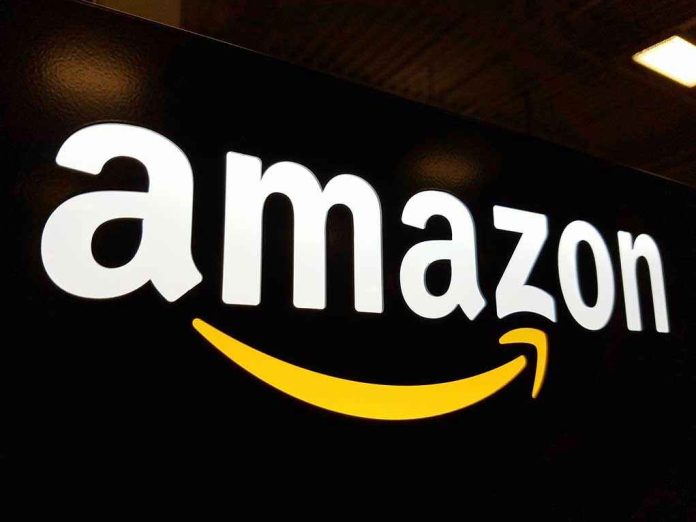
Amazon faces a landmark federal trial over allegations it deceived millions into unwanted Prime memberships and made escaping nearly impossible—raising pressing questions about unchecked Big Tech power and consumer rights.
Story Snapshot
- The FTC is suing Amazon, accusing it of tricking customers into signing up for Prime and making cancellation intentionally difficult.
- Amazon executives could face personal liability if found responsible for deceptive practices in the Prime subscription process.
- The trial is a major test for federal consumer protection laws and could reshape how digital subscriptions are managed industry-wide.
- Jury selection began in September 2025, with a Seattle court set to determine whether Amazon violated federal law for over a decade.
FTC Takes Amazon to Court Over Prime Subscription Tactics
In September 2025, a Seattle federal court opened a pivotal trial that could redefine the balance of power between American consumers and online giants. The U.S. Federal Trade Commission alleges that Amazon, through misleading website design and complex processes, covertly enrolled customers in its Prime subscription and then made cancellation a labyrinthine ordeal. This lawsuit—rooted in the Restore Online Shoppers’ Confidence Act (ROSCA)—targets not only Amazon itself but also three high-ranking executives, bringing the possibility of individual accountability for corporate misconduct into sharp focus. The trial’s outcome could send a powerful message to Big Tech about the real-world consequences of deceptive digital practices.
Amazon maintains that its Prime terms are transparent and that users have access to multiple, straightforward cancellation options. Nevertheless, internal company documents reportedly liken the Prime cancellation process to Homer’s “Iliad”—notorious for its epic length—while consumer complaints have mounted about confusing sign-up flows. The FTC’s case is bolstered by years of investigation and a growing national backlash against so-called “dark patterns,” which are user interface tricks that nudge or trap people into unwanted subscriptions. The court’s decision will hinge on whether these designs cross the line into deliberate deception, violating the rights of consumers and the spirit of American free enterprise.
Key Stakeholders and High Stakes for Industry Oversight
The stakes in this case extend far beyond Amazon’s corporate headquarters. As headlined defendants, Amazon executives Neil Lindsay, Jamil Ghani, and Russell Grandinetti face the potential for personal liability. U.S. District Judge John Chun, presiding over the trial, has already limited some of Amazon’s legal defenses and confirmed that ROSCA applies to Prime, signaling the seriousness with which the judiciary views digital consumer protection. Meanwhile, the FTC seeks to set a legal precedent that will force all tech companies to ensure online subscriptions are marketed and managed with honesty and transparency, in line with common-sense American values of fairness and personal choice.
Amazon’s vast economic clout—Prime now boasts over 200 million members and $12 billion in annual subscription revenue—makes this trial one of the most consequential consumer protection battles to date. The outcome could force Amazon and its peers to overhaul subscription and cancellation policies, potentially affecting the business models of countless e-commerce and digital service providers. For everyday Americans, especially those wary of government overreach and Big Tech manipulation, the case highlights the need for vigilant oversight without sacrificing personal freedom or market innovation.
Broader Implications: Consumer Rights, Big Tech, and Conservative Principles
In the short term, Amazon could face significant fines, mandated changes to its subscription practices, and major reputational fallout. More broadly, a verdict against Amazon would empower federal regulators to demand clearer disclosures and simpler cancellation methods across the tech sector, echoing conservative calls for transparency and accountability. Some business groups warn that overzealous enforcement could stifle innovation and inject new layers of bureaucracy, while consumer advocates insist that basic fairness and respect for individual choice are non-negotiable. The trial also underscores a growing willingness by federal authorities to pursue individual accountability for executives, not just faceless corporations, when American families are harmed by dubious corporate practices.
Expert commentary frames this trial as a critical test of ROSCA’s power to police “dark patterns” and protect consumers in the digital age. While critics of Amazon cite internal documents as evidence of intent to deceive, defenders argue that occasional confusion is inevitable given the scale of Amazon’s operations. Both sides agree, however, that the stakes are high: the jury’s decision will help define the boundaries of corporate responsibility, the reach of federal regulation, and the future of online commerce in America. For conservatives who value consumer freedom, limited government, and unwavering fairness, this is a trial worth watching closely.
Sources:
Amazon Prime membership lawsuit: What to know about the FTC fraud and antitrust case





